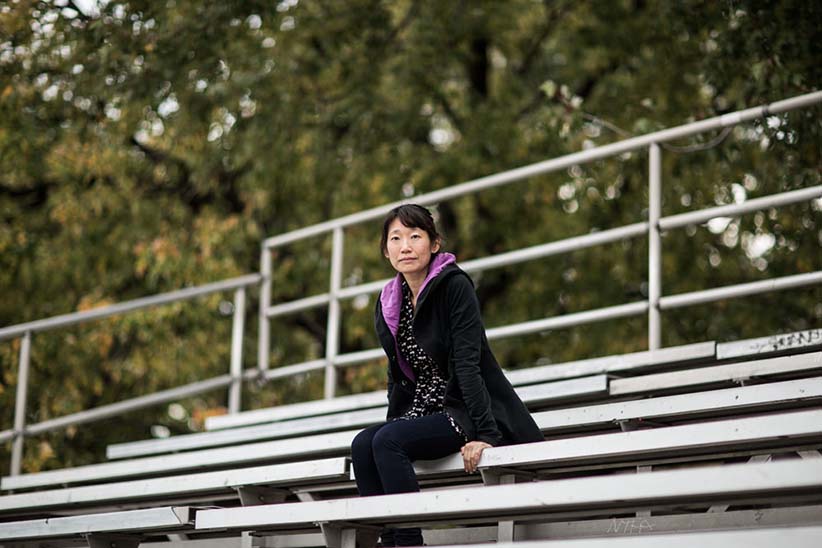Madeleine Thien takes home the Giller Prize
“I’m just happy for the book. So happy for the book.”
Portrait of Giller prize nominee Madeline Thien. (Photograph by Will Lew)
Share

The odds-on possibilities locked into place last night in CanLit’s year of convergence, when Madeleine Thien’s novel Do Not Say We Have Nothing won the $100,000 Scotiabank Giller award, Canada’s most prestigious and lucrative literary prize.
With 16 nomination slots available on the country’s Big Three prize lists, jurors filled them with only 11 titles. That meant five authors had dual nominations. Up for both the Rogers Writers’ Trust and Governor General’s (GG) awards were Anosh Irani (The Parcel), Kerry Lee Powell (Willem De Kooning’s Paintbrush), Katherena Vermette (The Break); like Thien, Gary Barwin (Yiddish For Pirates) was shortlisted for the GG and the Giller. With Thien’s win at the Giller following upon her Oct. 25 win of the GG, one of those doubles came through.
It’s was also the year of female writers in Canada, who made up eight of the 11 nominees for the three prizes—and, with Yasuko Thanh taking the WT on Nov. 2—won them all.
Related: Madeleine Thien on the writer’s life
None of that was on an emotional Thien’s mind when she won. Afterwards she spoke of her out-of-body experience: “I just felt surrounded by silence, and I didn’t understand the meaning until I saw the joy on the faces of my editor [Lynn Henry] and my partner.” That would be fellow Montreal writer Rawi Hage, who has had his own lightning-struck moment, when his debut novel, De Niro’s Game, took the $160,000 Dublin IMPAC Literary Award, the world’s richest book prize, in 2009.
In her thanks, Thien quoted from one of Hage’s later works, Carnival, later calling the passage “one of my favourite in world literature.” She also wished her late mother, “who taught me how to be kind and how to be brave” could have been there to see her win. It was the acknowledgment, Thien said repeatedly afterwards, that she wished her mother could have seen—and not of Thien as a writer, but of the story she told, an exquisite, delicate and moving exploration of time and memory. “I’m just happy for the book. So happy for the book.”